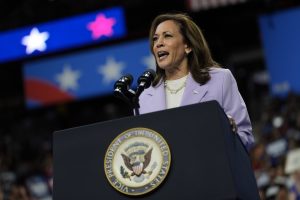If Kamala Harris ascends to the presidency, her record hints at a leadership style marked by increased government spending and more progressive social policies. Known for her commitment to issues of equity and social justice, she has championed numerous policies aimed at reducing economic and racial disparities. Supporters argue that these initiatives could bring positive change by addressing deeply rooted inequalities and enhancing social welfare programs. However, critics worry that her approach would expand government power and lead to heavy taxation, potentially impacting businesses and individual freedoms.
On the economic front, Harris has historically backed extensive federal spending on health care, education, and climate initiatives, which would likely mean larger government budgets and possible increases in public debt. Her stances on issues like bail reform, policing, and social equity have also drawn mixed reactions, with proponents applauding her progressive vision while skeptics see a potential shift toward policies they feel prioritize social agendas over economic stability.
If Harris takes office, we might see a stronger federal presence across sectors, a shift towards more regulation, and an intensified focus on social justice issues. Her presidency could lead to fundamental shifts in areas like criminal justice reform, immigration, and environmental policy—transforming government’s role in ways that supporters believe are overdue, and critics feel are overreaching. The question remains: will these changes bring progress, or will they lead to greater economic strain and government interference? 



